Giving birth during adolescence is linked to a variety of negative health, social, and economic outcomes for both mothers and their children. Conflict, displacement, and humanitarian crises — which disproportionately…
Elizabeth Stites
Research Director and Associate Professor
Associate Research Professor, The Fletcher School at Tufts University
Research Associate Professor, Friedman School of Nutrition
Contact
Working with Feinstein since 2002
Based in Budapest, Hungary and South Dartmouth, Massachusetts
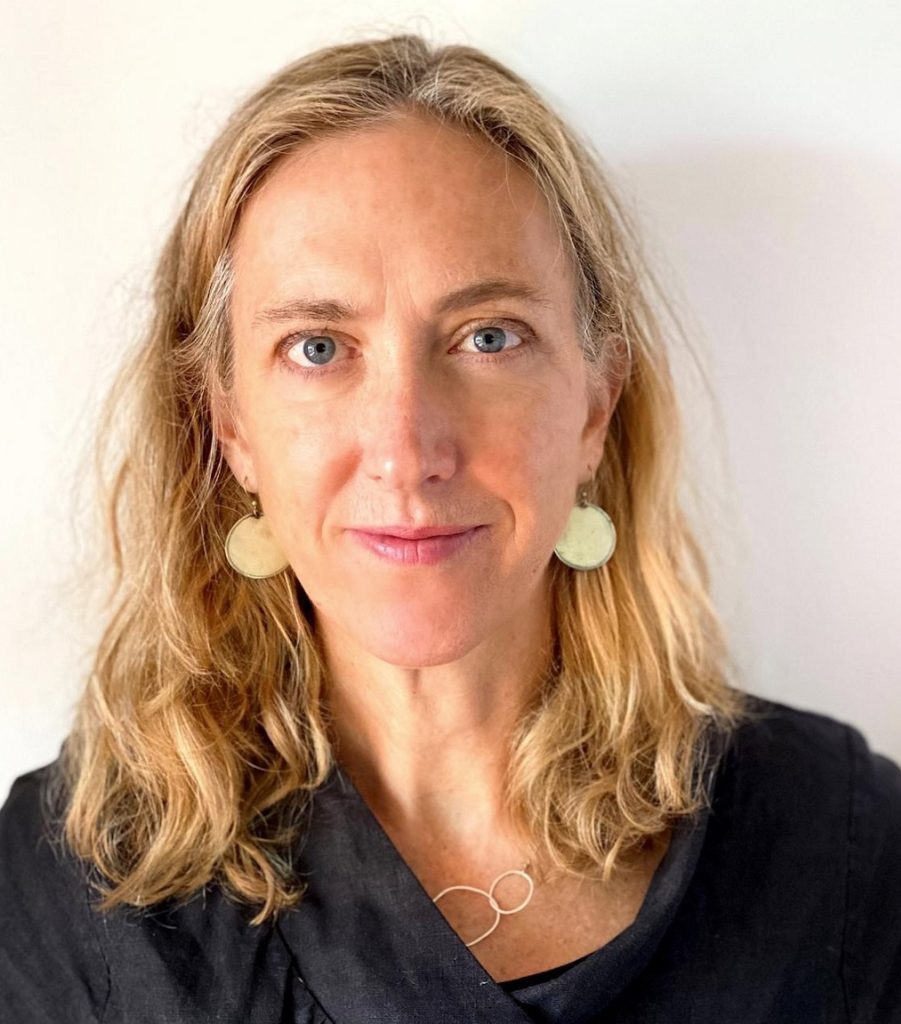
Elizabeth Stites directs Feinstein’s Research Program on Conflict and Livelihoods, focused on the effects of conflict and violence on civilian livelihoods. She is particularly interested in how different members within a household make changes to their livelihoods in times of conflict or crisis, and also how violence and livelihood strategies can reinforce each other. On the policy level she examines the effects of humanitarian, development, and military policies on livelihoods, security, and gender roles. Her field work aims to improve the effectiveness of international and national policies through evidence-based research reflecting the lived experiences of local communities. She aims to understand the challenges and hopes that inform people’s daily decision making, and strives to ensure that local people’s voices and experiences are heard in contexts in which they are often invisible. She has worked in multiple countries in sub-Saharan Africa, in Afghanistan, Bosnia, and Nepal and on the Syria crisis.
Prior to joining Feinstein, Elizabeth worked as a consultant to UN organizations, academic centers, and international non-profits. She lived in South Africa for four years in the 1990s, where she researched post-apartheid land restitution and worked closely with families, community groups, government agencies, and non-profit organizations.
Elizabeth holds a B.A. from Wesleyan University, an M.A. from the University of Cape Town (South Africa), and an M.A.L.D. and a Ph.D. from The Fletcher School at Tufts University.
RESEARCH INTERESTS
- Intra-household livelihood adaptations in times of stress
- Early marriage in settings of conflict and displacement
- Gender and livelihoods among pastoral and agropastoral populations
REGIONAL FOCUS
- Eastern and southern Africa
COURSES TAUGHT
- Gender, Culture, and Conflict in Complex Emergencies (NUTR 222/DHP D232), Fall Term
- Gender and Human Security in Transitional States and Societies (DHP D231), Spring Term
MOST CITED BOOKS & ARTICLES
- Howe, K., Stites, E. “Partners under Pressure: Humanitarian Action for the Syria Crisis.” Disasters (January 2019) 43(1): 3-23.
- Stites, E., Howe, K., “From the Border to the Bedroom: Changing Conflict Dynamics in Karamoja, Uganda Journal of Modern African Studies (March 2019) 57(1): 137-159.
- Stites, E. “‘The only place to do this is in town:’ Experiences of rural-urban migration in northern Karamoja, Uganda.” Nomadic Peoples (2020) 24: 32-55.
- Stites, Elizabeth and Anastasia Marshak. “Who are the Lonetia? Findings from southern Karamoja, Uganda.” Journal of Modern African Studies (2016) 54: 237-262.
- Stites, Elizabeth. “A Struggle for Rites: Masculinity, Violence and Livelihoods in Karamoja, Uganda.” In Gender, Violence, and Human Security: Critical Feminist Perspectives, edited by Aili Tripp, Myra Marx Ferree, and Christina Ewig. New York University Press, 2013.
MOST RECENT EXTERNAL PUBLICATIONS
- Howe, Kimberly, Elizabeth Stites, Lucy Bassett, and Maya Ewart. 2024. “Health and Well-being of Young Mothers Displaced by Conflict: Experiences From South Sudan and the Kurdistan Region of Iraq.” Social Science & Medicine 348 (May): 116710. https://doi.org/10.1016/j.socscimed.2024.116710.
- Seaman, M., Stites, E., “Family Matters: Older Refugee Minors in Vienna and Factors for Resiliency.” Journal of Refugee Studies (June 2022) 35 (2): 988-1010.
- Iyer, P., Stites, E. “Trauma, loss and other psychosocial drivers of excessive alcohol consumption in Karamoja, Uganda.” Pastoralism (2021) 11 (30).
- Stites, E., Humphrey, A., Krystalli, R. “Social Connections and Displacement from South Sudan to Uganda: Towards a relational understanding of survival during conflict.” Journal of Refugee Studies (September 2021) 34 (3): 2720–2739.
RECENT NEWS
Attacks on aid workers in conflict zones have been on the rise since the late 1990s. More than 180 local aid workers have been killed since the start of the…
Many of the most pressing climate adaptation challenges facing Africa are concentrated in the drylands, which face drought as well as other shocks like disease outbreaks, floods, or conflicts. Pastoral…
As part of the Nawiri program in Kenya, Helen Young, Elizabeth Stites, Anastasia Marshak, and Achiba Gargule led a three-day Analysis Workshop in Kenya. The workshop brought together Nawiri partners…
Since 2019, Kimberly Howe and Elizabeth Stites have been working on a cohort study that provides a rare and holistic view into the lives of female youth living in displacement…
After a period of relative peace and stability, violent livestock raiding and other forms of conflict are once again driving a food security crisis in Karamoja in the far northeast…
Across East Africa’s pastoralist areas, people’s livelihoods are increasingly diversified. Although education is a pathway to positive livelihood options, levels of formal education and literacy in these areas fall far…
Elizabeth Stites and co-authors Roxani Krystalli, Alex Humphrey, and Nyuon Moses Gathuoy published their article “Cattle to cash: Changing marriage practices among displaced people in Bentiu, South Sudan” in Women’s…
The Early Marriage in Conflict and Displacement research team, led by Kimberly Howe and Elizabeth Stites, has been on the road connecting with humanitarians, advocates, and policy makers and sharing…
War in the Ukraine broke out in February 2022. Feinstein International Center faculty and researchers have been sharing what they know about the crisis and wider implications through a variety…
War in the Ukraine broke out in February 2022. Feinstein International Center faculty and researchers have been sharing what they know about the crisis and wider implications through a variety…
Kimberly Howe and Elizabeth Stites, together with their colleagues at Save the Children Denmark and field researchers, officially launched their study on “Early Marriage Among Female Youth in Displacement” in…
Helping Ukrainians means listening to their needs – 3 lessons for aid groups from Syria’s war Millions of Syrians remain displaced from the conflict that began in 2011. Delil Souleiman/AFP…
The Feinstein International Center has been working with academic colleagues in Sudan since it began working in the country more than 20 years ago. However, developing partnerships at the institutional…
Mackenzie Seaman and Elizabeth Stites published their article, “Family Matters: Older Refugee Minors in Vienna and Factors for Resiliency” in the Journal of Refugee Studies. This article challenges the assumption…
In November 2021, Pastoralism released with a special section of articles coming out of the Karamoja Resilience Support Unit’s 2019 conference “Pathways to Resilience in the Karamoja Cluster.” It includes…
Elizabeth Stites co-authored an article in the September 2021 issue of the Journal of Refugee Studies with Alex Humphrey and Visiting Fellow Roxani Krystalli. The article, “Social Connections and Displacement…
Elizabeth Stites, Alex Humphrey, and Roxani Krystalli published an article in the Journal of Refugee Studies titled, “Social Connections and Displacement from South Sudan to Uganda: Towards a Relational Understanding…
In March 2020 the World Bank published a report on resilience and economic opportunity in the Borderlands of the Horn of Africa where pastoralism and trade are the dominant livelihoods….
Jeeyon Janet Kim, Elizabeth Stites, Patrick Webb, Mark A. Constas, and Daniel Maxwell published “The effects of male out-migration on household food security in rural Nepal“ in Food Security in…
In March, 2019 the Journal of Modern African Studies published Elizabeth Stites and Kimberly Howe‘s article “From the Border to the Bedroom: Changing Conflict Dynamics in Karamoja, Uganda.” The article…
In January 2019 Kimberly Howe and Elizabeth Stites published an article in Disasters called “Partners under Pressure: Humanitarian Action for the Syria Crisis.” Kimberly and Elizabeth present the findings of…
A Feinstein team including Helen Young, Andy Catley, Elizabeth Stites, and Anastasia Marshak held a one day workshop with the Food and Agriculture Organization of the United Nations (FAO) in…
On Monday September 24, 2018 Elizabeth Stites attended the invitation-only Save the Children Evidence to Action forum in Washington D.C. Researchers and development practitioners attended the forum to explore recent…
The Women, Peace, and Security (WPS) Program officially launched on October 27, 2017 at Columbia University. Feinstein’s Elizabeth Stites attended the conference…
Feinstein faculty, researchers, and visiting fellows had a prominent role at the SEEP 2017 conference in Washington DC on October 4, 2017. Elizabeth Stites presented findings from the Secure Livelihoods…
The Tufts Nutrition Magazine’s a la carte section described Elizabeth Stites’ work in Uganda that shows the wisdom of traditional herding in Uganda. The story by Julie Flaherty is here….
Elizabeth Stites participated in a learning event in Kampala at the end of the five-year Growth, Health and Governance Program implemented by Mercy Corps Uganda and funded by USAID/FFP. Elizabeth…
On August 9, 2017, Elizabeth Stites participated in the curriculum consortium on teaching women, peace, and security (WPS) in higher education.The consortium is responding to an urgent need for students…
Feinstein faculty are teaching a variety of courses on humanitarian issues during the upcoming Spring 2017 Semester. We encourage students to check them out: Karen Jacobsen: Forced Migration (DHP D239)…
Classes are starting soon, and Feinstein faculty, researchers, and visiting fellows will be bringing their vast experiences to the classroom! Look below for the list of courses. Friedman and Fletcher…
Elizabeth Stites and Anastasia Marshak published their article, “Who are the Lonetia? Findings from southern Karamoja, Uganda” in the June 2016 edition of the Journal of Modern African Studies. The…
The first ever World Humanitarian Summit took place in Istanbul, Turkey on May 23-24, 2016. The summit aimed to set a forward-looking agenda for humanitarian action that addresses future humanitarian…
Elizabeth Stites participated in a panel hosted by the International Crisis Group (ICG) aimed at helping the organization better incorporate gender into their analysis of conflict situations around the world…
Elizabeth Stites gave a talk on remote management of humanitarian assistance at the Fletcher School on April 7th. The focus was on cross-border assistance delivered from Turkey into northern Syria….
We invite our London-based colleagues to join us on April 14, 2016 for a discussion on humanitarian evidence, co-hosted by Oxfam and the Feinstein International Center. Please see below for an…
The spring semester has begun at The Friedman School of Nutrition Science and Policy and The Fletcher School of Law and Diplomacy at Tufts University, and Feinstein International Center Faculty…
The Humanitarian Evidence Program, a partnership between Oxfam GB and the Feinstein International Center, recently filed a submission to the World Humanitarian Summit consultations. The submission, titled “Humanitarian evidence: going…
Kimberly Howe and Elizabeth Stites presented on FIC’s work on cross-border partnerships and humanitarian assistance into northern Syria at the US Department of State and USAID on April 27, 2015. The briefings focused…
Elizabeth Stites presented on FIC’s work on cross-border partnerships and humanitarian assistance into northern Syria at the International Rescue Committee in New York on March 25th, 2015. The brownbag at the International…
FEINSTEIN PUBLICATIONS
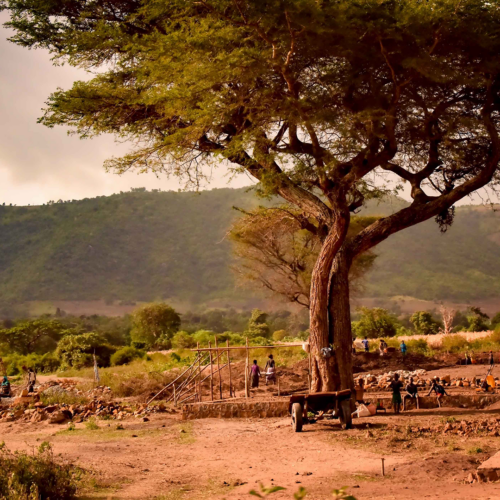
This synthesis report reflects upon Phase 1 findings on humanitarian action in pastoral drylands of the Greater Horn and Sudano-Sahel.
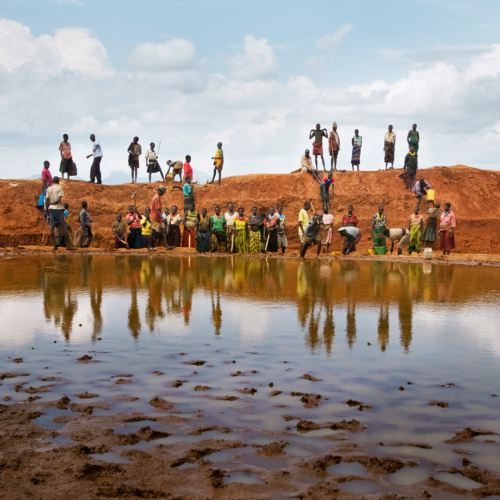
This desk study explores how state-owned policies and programs in pastoral areas of the Sudano-Sahel and the Greater Horn of Africa meet pastoralists’ needs and priorities.
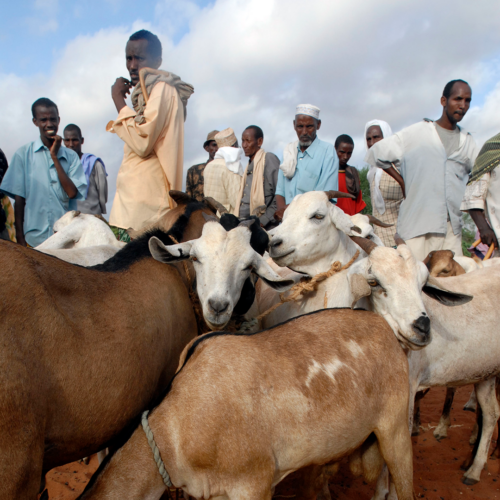
This desk study explores how pastoralists manage climate, conflict, and other stresses through indigenous early warning systems, preventive actions, local emergency responses, and customary safety nets.
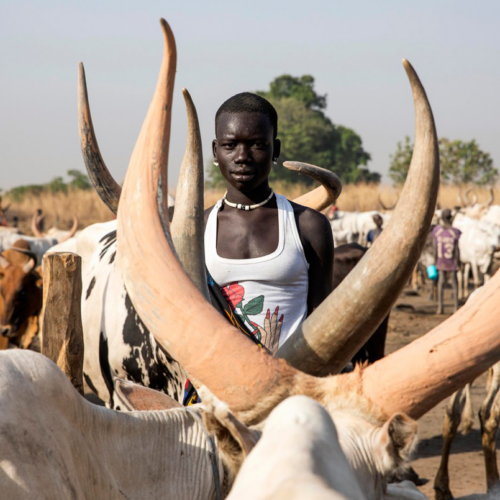
This briefing paper summarizes some of the nuances that exist and the shifts that are occurring within gender dynamics in pastoralist livelihood systems in Africa.

Cette note d’information résume certaines des nuances qui existent et les changements qui se produisent actuellement dans la dynamique du genre dans les systèmes de subsistance pastoraux en Afrique.
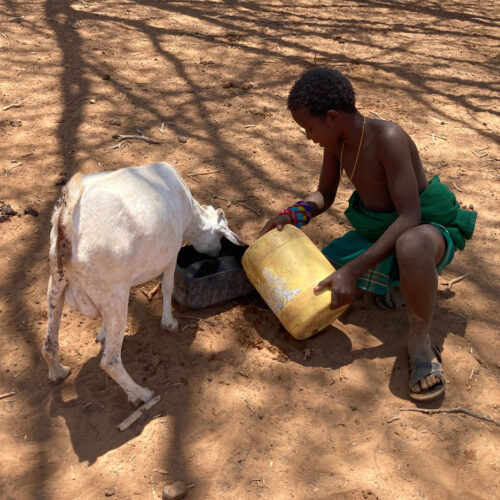
This learning brief explores the continuity and changes to livelihoods in select sites in Isiolo and Marsabit Counties, Kenya, and reviews the implications of the continuity and the changes on the drivers of child acute malnutrition.
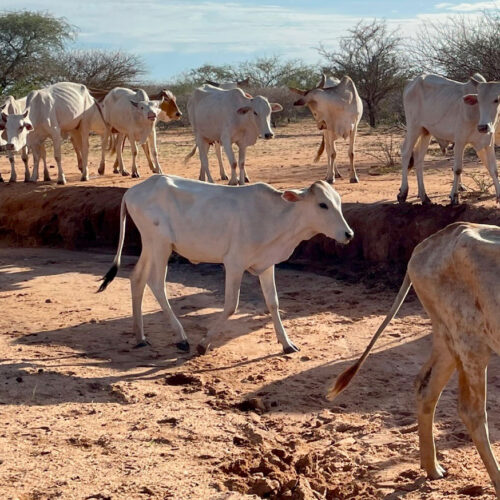
This learning brief presents preliminary findings on strategic mobility and its nutritional benefits to pastoral and agropastoral communities in select sites in Isiolo and Marsabit Counties, Kenya.
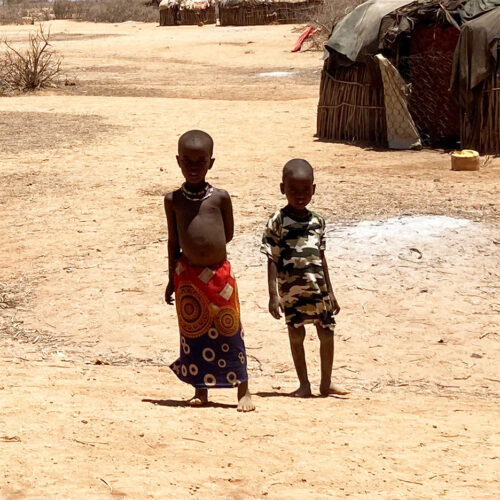
This learning brief presents preliminary findings about the cause (drivers) of persistently high rates of child acute malnutrition in select sites in Isiolo and Marsabit Counties.

This report provides insights and perspectives from participatory workshops with displaced female youth in the Kurdistan region of the Republic of Iraq (KRI).

This paper examines the role of marital status and motherhood on schooling experience and educational interruption, attainment, and aspirations in South Sudan and the Kurdistan Region of Iraq.
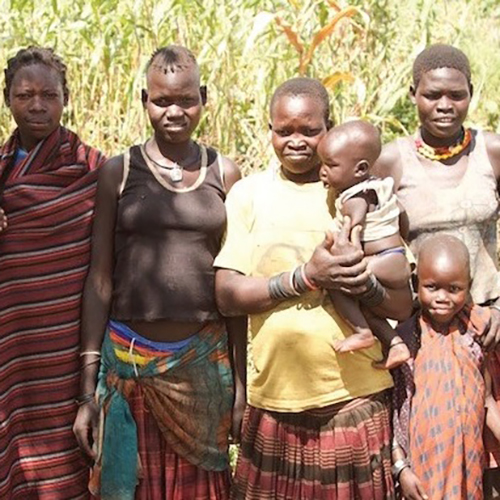
This brief investigates the perceptions and experiences of young women related to wealth, livelihoods, and aspirations in Uganda’s Karamoja sub-region.
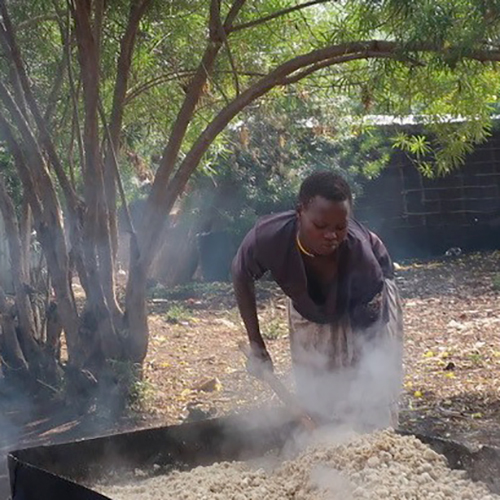
This brief investigates how wealth, wealth equality, and food security have changed in specific villages in four districts in the Karamoja sub-region of Uganda from 2018 to 2021/22.
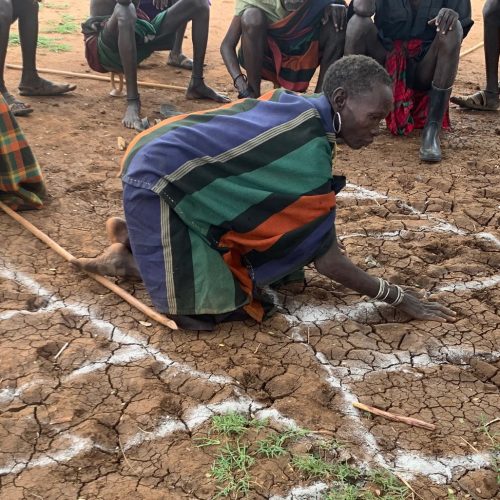
This study aimed to better understand changes in and perceptions of wealth and equality in four counties in the Karamoja sub-region of Uganda.

Very little is known about the experiences of female youth who marry under 18 and later become separated, divorced, or widowed. This briefing paper underscores the unique vulnerabilities and challenges that these youth face in the Kurdistan Region of Iraq (KRI) and South Sudan.
This briefing paper outlines the situation of displaced female youth—unmarried, married, divorced, widowed—from a mental health and psychosocial functioning (MHPSS) lens.

This briefing paper examines the experiences of life after marriage for female youth who married under the age of 18 in South Sudan and the Kurdistan Region of Iraq. It describes how early marriage affects education, mental health, protection issue, and family dynamics.

This briefing paper focuses on the decision-making processes that led displaced female youth to marry early, based on their experiences in the Kurdistan Region of Iraq and South Sudan.
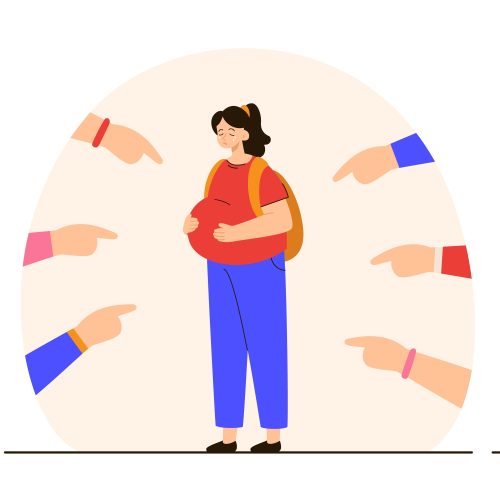
This briefing paper follows displaced female youth in South Sudan who had unintended pregnancies. It describes the circumstances leading to early pregnancy, their after becoming aware of their pregnancies, and the impact of their pregnancies on marriage, education, mental health, family relationships, and household economics.
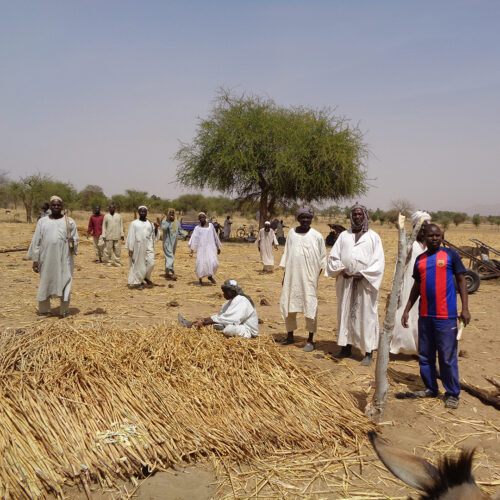
This report examines how informal social safety nets operate, the functions they serve, who benefits, and the obligations on community members in North and South Darfur.
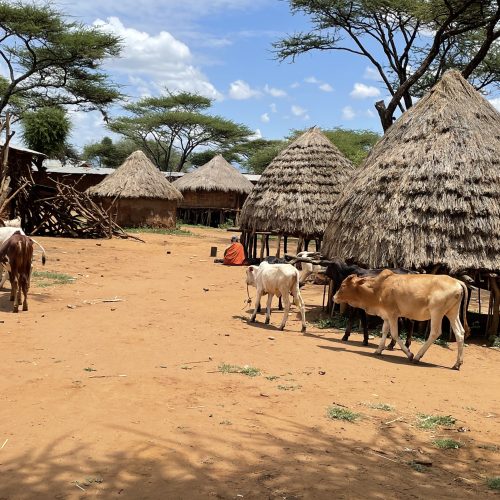
New shocks (such as Covid-19) and persistent shocks (such as livestock and crop disease) caused rapid changes for young men and women in the Karamoja sub-region of Uganda between 2019…
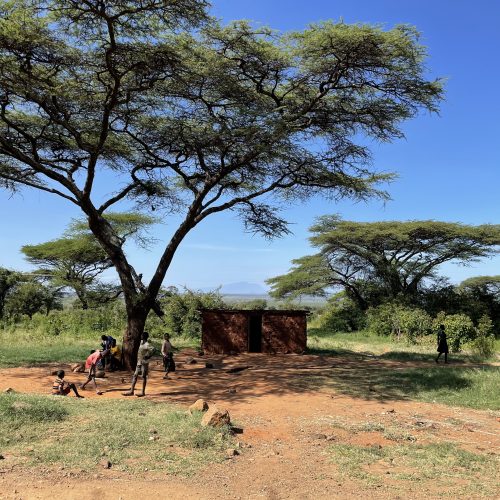
This briefing paper examines how various shocks affected youth in the Karamoja sub-region of Uganda in 2020 and early 2021.
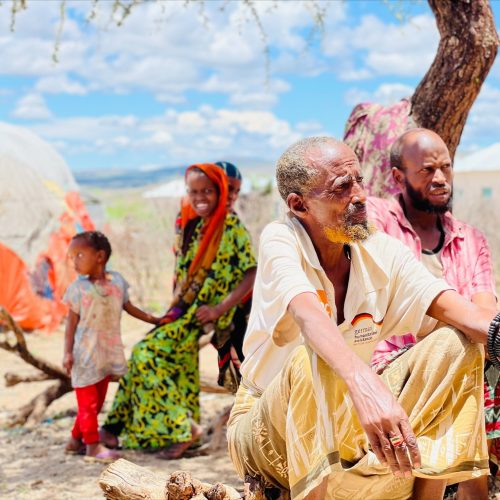
This assessment examines three ways in which national and international actors have sought to implement long-term, “durable,” solutions to internal displacement in Ethiopia’s Somali Region: resettlement, relocation, and local integration.
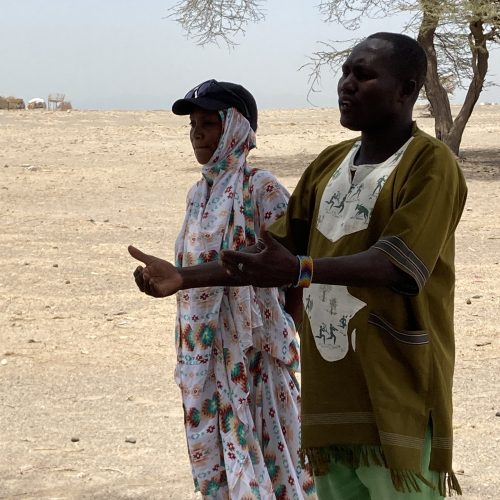
The gender gap analysis analyzes available information and identifies evidence and knowledge gaps around livelihood systems from a gender perspective in Isiolo and Marsabit Counties in northern Kenya.
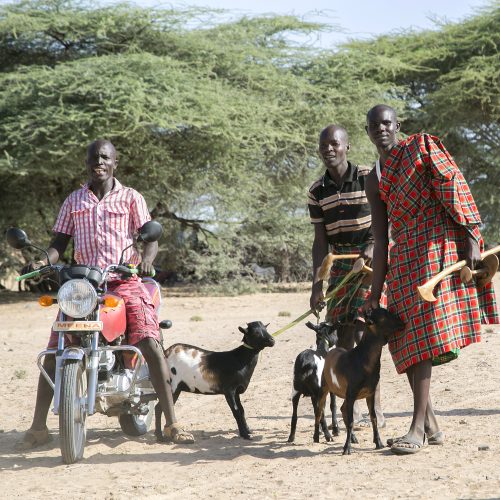
This desk study examines the existing knowledge on how livelihood systems influenced nutritional outcomes in the Marsabit and Isiolo counties in northern Kenya.
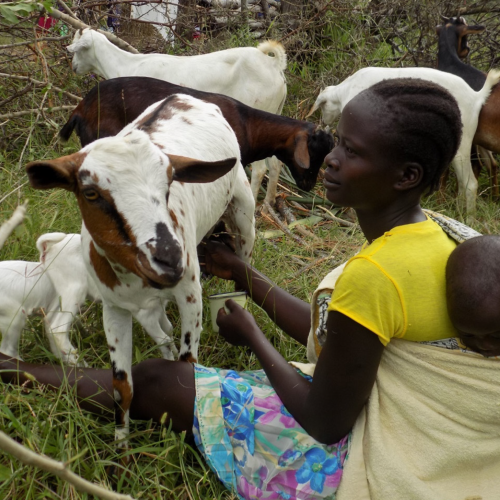
This briefing paper is based on a midline quantitative survey for the Apolou project in the Karamoja sub-region of Uganda.
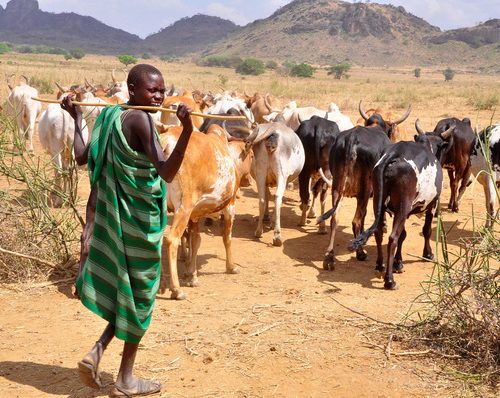
This briefing paper examines the ways in which young people take advantage of emerging livelihood opportunities and respond to shocks.
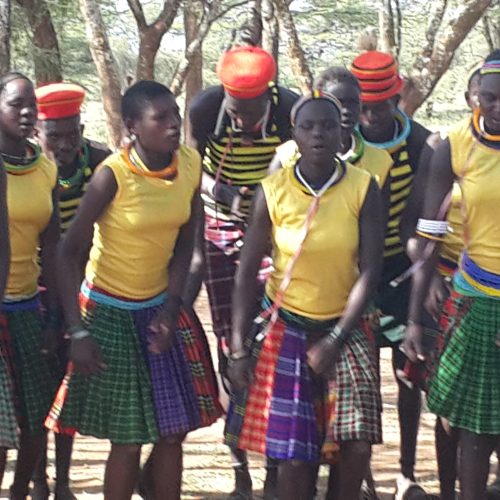
This briefing paper explores some of the major life events and social markers for young people in the Karamoja sub-region of Uganda.
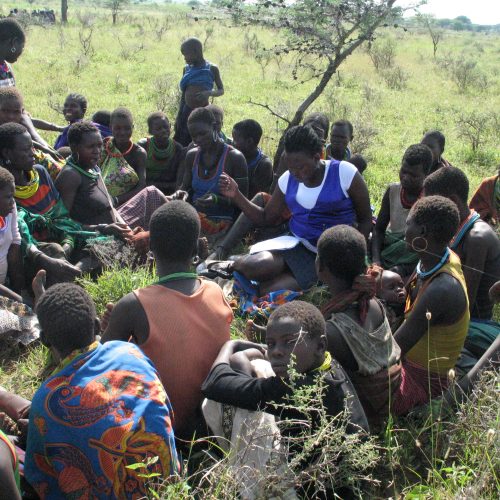
This paper analyzes and investigates young people’s interactions with savings and credit associations and how this contributed to livelihood strategies.
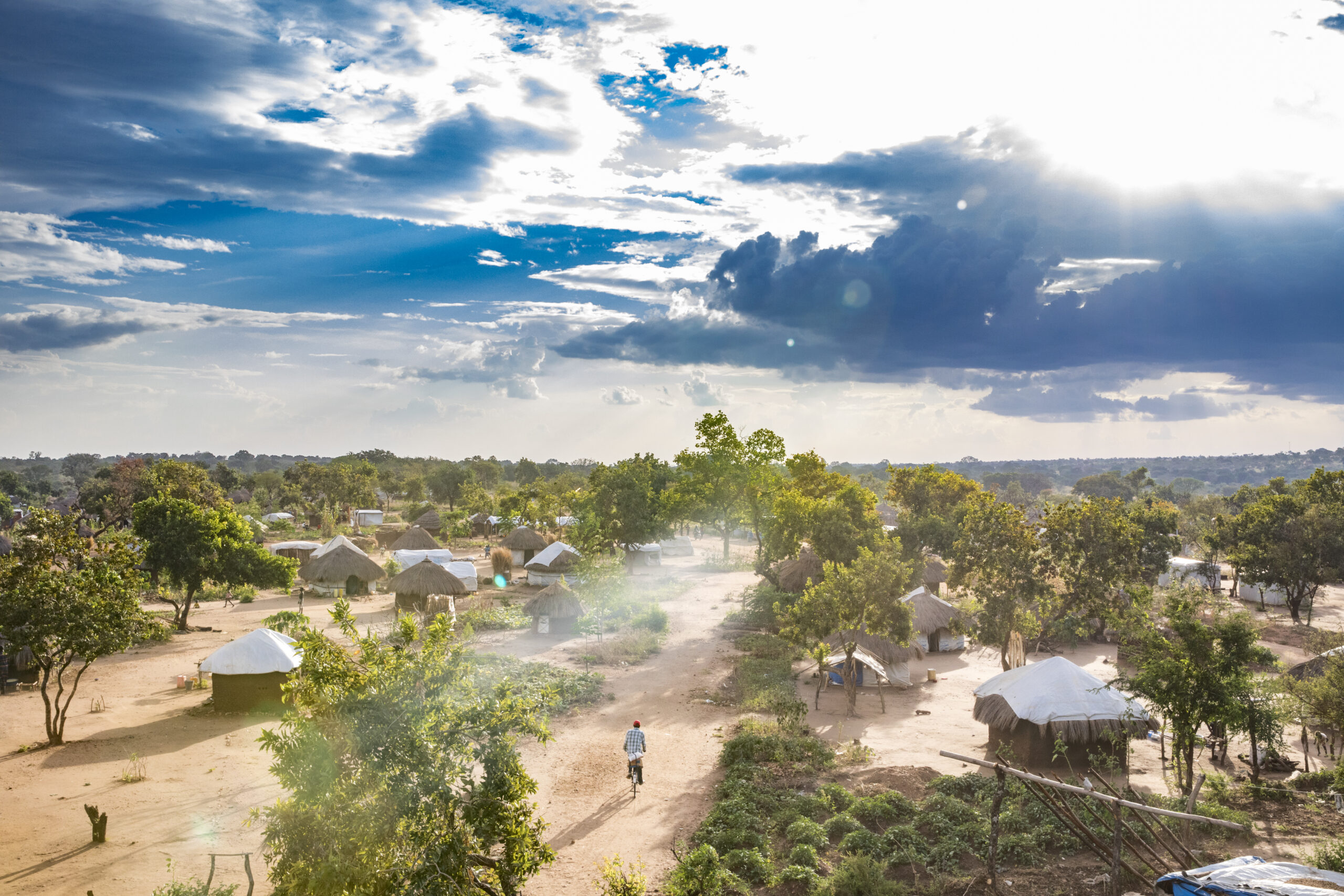
This briefing paper examines how South Sudanese refugees in settlements in West Nile, Uganda establish and leverage their social connectedness throughout the process of displacement and settlement.
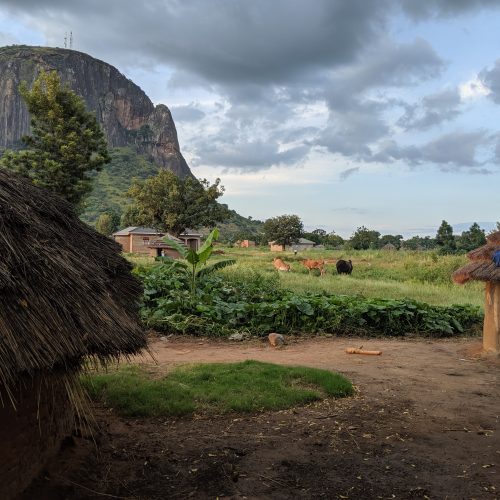
This report describes household recovery in northern Uganda from the 20 years of conflict between the Lord’s Resistance Army (LRA) and the Government of Uganda (GoU) by following the same…
This is the third in a series of three briefing papers that form part of the Mind the Gap: Bridging the Research, Policy, and Practice Divide to Enhance Livelihood Resilience…
This is the second in a series of three briefing papers that form part of the Mind the Gap: Bridging the Research, Policy, and Practice Divide to Enhance Livelihood Resilience…
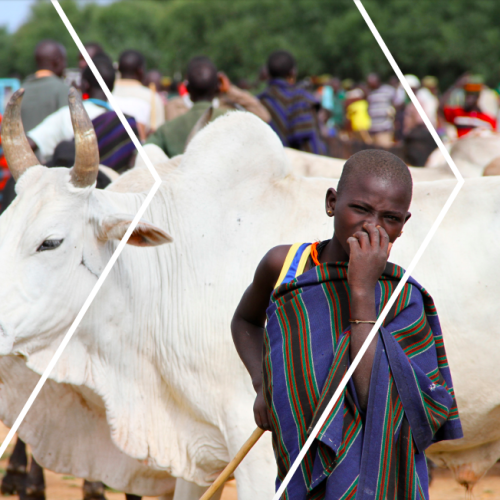
This paper examines the parallel but separate trajectories of peace-building, transformation, and livelihood recovery in northern (Acholi and Lango sub-regions) and northeastern (Karamoja sub-region) Uganda over the past 15 years….
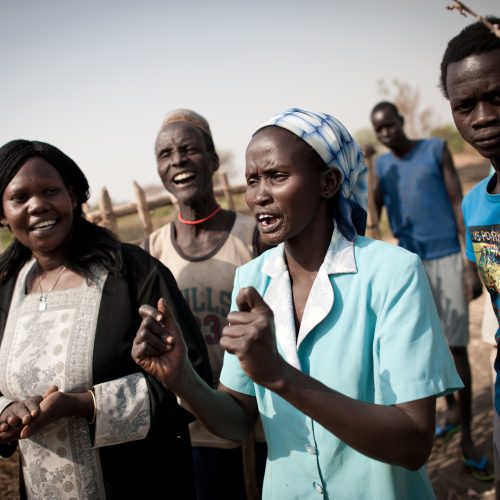
This briefing paper examines changes to wedding rituals and the nature of marriages in the Bentiu Protection of Civilians site and adjacent areas of Rubkona and Bentiu towns.
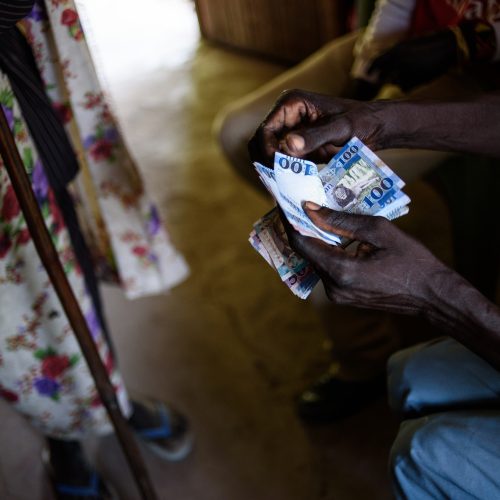
This briefing paper explores the establishment and reconfiguration of informal livelihood groups and associations as a form of socioeconomic connectedness in Bentiu, South Sudan.
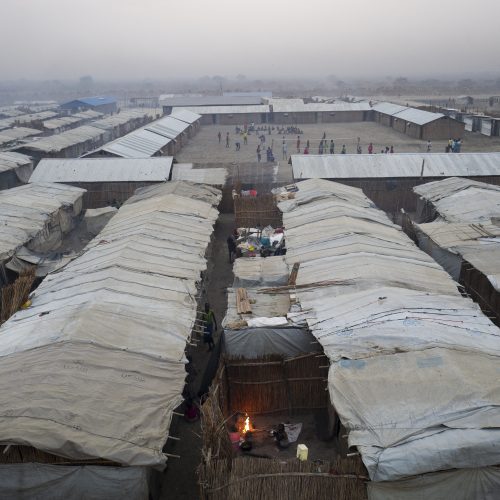
This briefing paper examines changes in social connectedness in the Bentiu Protection of Civilians site and surrounding town.

This paper synthesizes findings from four studies on youth migration and resilience in different urban contexts. This work emerges from a collaboration between Save the Children US (Save US) and…
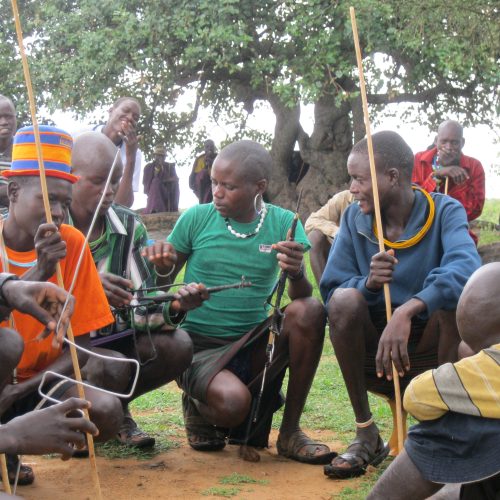
This report presents findings on the experiences and aspirations of male and female youth as they interact with the economic and aid systems in the Karamoja sub-region of Uganda. This…
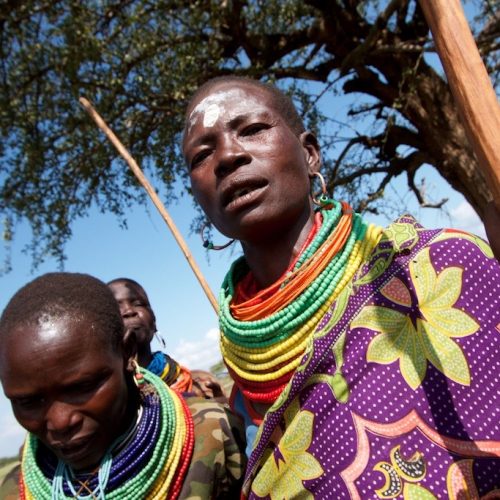
This report reflects findings from the baseline quantitative study of a four-year research project in the Karamoja sub-region of Uganda. We describe different aspects of wealth, such as animal-related wealth…
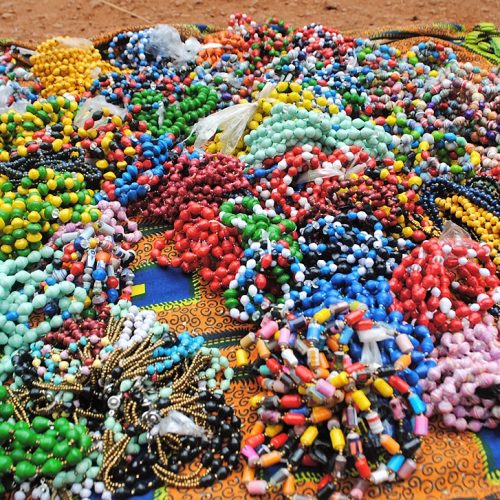
This working paper presents findings on the migration of youth from Acholi, Uganda to the urban areas of Gulu and Pabbo in northern Uganda, and to the Acholi Quarter neighborhood in Kampala.
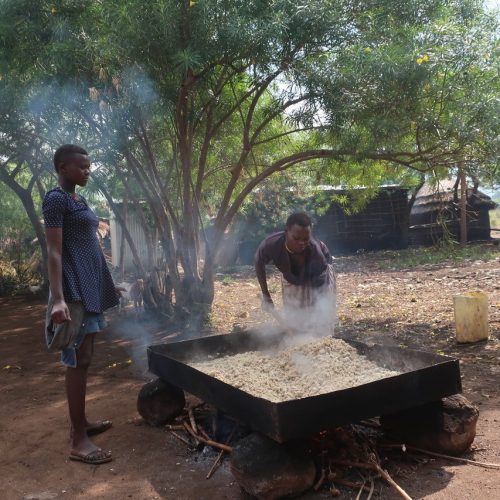
This briefing paper examines alcohol brewing and consumption in Karamoja, Uganda from the health and economic perspectives.
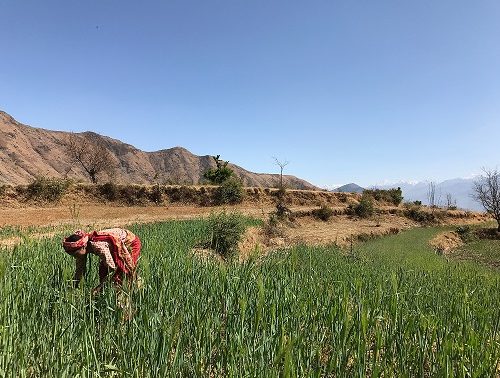
This report investigates food security resilience in Far-Western Nepal.
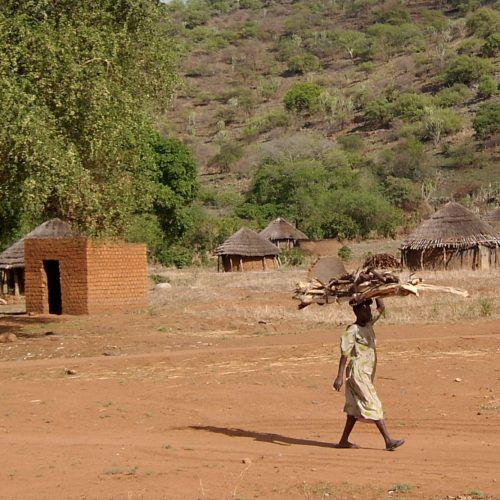
Resilience is defined as the ability of people to mitigate, weather, and “bounce back” from shocks or adversity. This definition is framed in terms of understanding capacities and risk—often particularly…

This is a briefing paper of the full report. Resilience is defined as the ability of people to mitigate, weather, and “bounce back” from shocks or adversity. This definition is…
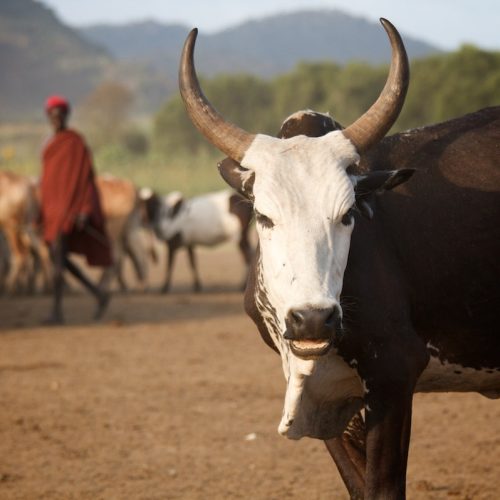
This fifth year report examines key areas of change in Karamoja over the past five years to inform development programming decisions.

This publication explores the evolution of the “livelihoods approach” to development and humanitarian assistance.
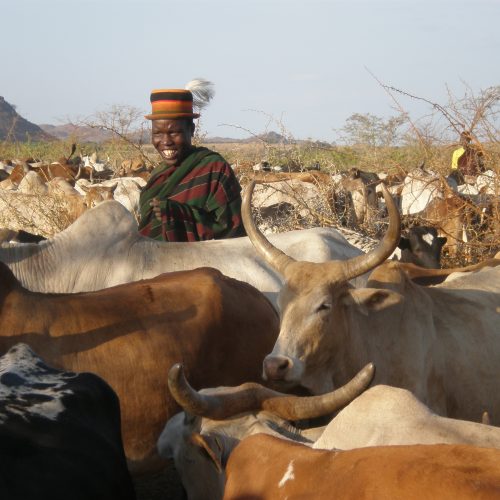
This report reviews the state of animal-based livelihoods in the Karamoja region of northeastern Uganda and examines how animal ownership affects a household’s ability to weather shocks.
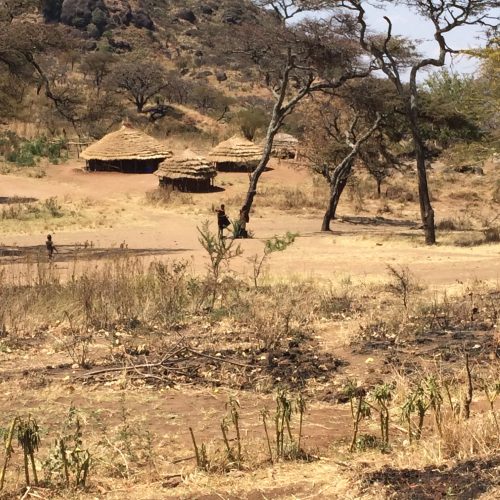
This study provides a nuanced understanding of the transformation of violence for women, men, girls and boys in northern Karamoja at the household, community, district and the regional levels. Drivers…
This is the second briefing paper emerging from a longer report on humanitarian action and partnerships in remote management settings. This briefing paper offers key insights and findings on the…
This is the first briefing paper emerging from a longer report on humanitarian action and partnerships in remote management settings. This paper offers key insights and findings on the challenges…
FEINSTEIN RESEARCH PROJECTS
The Cities of Youth project seeks to understand how climate change influences patterns of youth migration to secondary cities in Uganda.
This project aims to improve the lives and livelihoods of populations in pastoral areas of the Sudano-Sahel and Greater Horn of Africa by ensuring that early warning systems and humanitarian action are better attuned and more responsive to the needs and realities of these communities.
USAID Nawiri is an evidence-based development project to address acute malnutrition in northern Kenya. Catholic Relief Services leads a consortium in Isiolo and Marsabit counties, and Feinstein provides research and capacity-building support.
Feinstein’s work as part of the Apolou project seeks to understand the impacts over time of a shift to an increasingly cash-based economy on different wealth, livelihood, and demographic groups.
Our latest research shows that we do not know enough about early marriage to design programs and policies that effectively support female youth in the ways that they need. This study is generating the evidence humanitarians need.
The RISING II operational research analyzes the informal social safety nets—how they function, who benefits from them, and how external support interacts with them—in multiple program areas in Darfur, Sudan.
This study reviewed different options for durable solutions to internal displacement in the Somali Region of Ethiopia to inform and improve efforts by national and international stakeholders.
In this partnership with Mercy Corps, the Feinstein International Center team investigates the nature of social networks and social connectedness, and explores how humanitarian assistance can strengthen these as a key aspect of resilience, recovery and relief interventions in complex humanitarian emergencies.
The Karamoja Resilience Support Unit (KRSU) is an initiative of USAID/Uganda aimed at increasing resilience and economic development in the Karamoja Region of Uganda.
The Secure Livelihoods Research Consortium aims to generate a stronger evidence base on how people in conflict-affected situations make a living, access basic services like health care, education and water, and perceive and engage with governance at local and national levels.
This research project reviews, re-analyzes, and synthesizes the lessons from Feinstein’s experience of research linked to building livelihood resilience in protracted conflict situations.
This partnership between Save the Children US and Feinstein aims to improve the evidence base on migration of young people to urban areas.
This USAID-funded five year project (2012-2017) aims to improve livelihoods outcomes for the pastoral, agro-pastoral, and agrarian populations in the region.
From 2005 to 2017, we developed a wide-ranging research portfolio on livelihoods systems under stress throughout the Greater Horn of Africa and beyond. This project synthesizes key themes of that research.
The Humanitarian Evidence Program produces a series of evidence syntheses to distill humanitarian evidence and communicate it to key stakeholders in order to enable better decision-making and improve humanitarian policy and practice.
International organizations increasingly rely on local partners to engage in humanitarian action. This is particularly the case in highly insecure situations or when host governments limit or deny international access. Despite these trends, there have been few attempts to examine the effectiveness of international-local partnerships either in general or in insecure “remote management” contexts. This study explores these partnerships in the setting of cross-border assistance from Turkey to Syria in 2014. The case of Iraqi Kurdistan provides historical perspective.
This USAID-funded five-year project (2014-2019) aims to improve food security, resilience, and livelihoods for poor and marginalized communities in select areas of rural Nepal.
Feinstein field research throughout the Karamoja region will allow us to document and analyze how seers operate within their own communities and shed light on the complex nature of their relationships with other tribal groups, both friends and enemies.
Under a two-year research project with funding from Irish Aid/Kampala, FIC researchers are studying how groups are using customary mechanisms to respond to the changing social, political and economic environment in Karamoja.
This project seeks primarily to clarify some of the underlying causes of the chronically high levels of acute malnutrition found in pastoral regions in Ethiopia, Somalia, and Uganda.
In 2009-2011, the Tufts/FIC team worked in collaboration with SCiUG on research to improve and inform programming, policy making, and advocacy through the collection and dissemination of qualitative data on key livelihood issues.
Over the past three years, Tufts/FIC has conducted 12 country case studies on local perceptions of the work of humanitarian agencies. The objective was to understand, from the perspective of those most affected by crisis and conflict, whether humanitarian action was seen as responding to a universal imperative or as an externally-driven approach linked to Northern and Western agendas.
